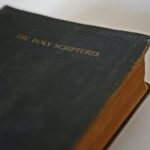 What follows is a very helpful series of articles by Dr. Ligon Duncan, written in July 2014 at his blog of ligonduncan.com:
What follows is a very helpful series of articles by Dr. Ligon Duncan, written in July 2014 at his blog of ligonduncan.com:
Why how we worship matters
July 12, 2014
Protestants have always believed that how we worship, the manner of our public worship, matters. The main reason for this is because Protestants believe that the Bible itself, in both the Old and New Testaments, commands a number of important things about how we are to conduct ourselves in gathered worship.
There are, of course, historical reasons for this interest in the manner, or how, of public worship as well. For instance, the Protestant reformers believed that the way you worship actually influences and reinforces what you believe. That is one reason they were so interested in reforming the worship practices of the church in their day. They did not believe that you could make a Protestant with Roman Catholic worship. More deeply, they believed that much of Roman Catholic worship was unbiblical (and that it undermined the Gospel), and hence they wanted to reform congregational worship according to the Bible. Indeed, John Calvin said that there were two main issues at stake in the reformation: biblical worship and justification by faith (in that order!). So, for Calvin, how we worship is no small matter.
But isn’t focusing on “how” we worship a little legalistic? Worship is a matter of the heart, right?, and so doesn’t focusing on the outward manner of worship get us off on the wrong track. Well, I hear that objection and I am not unsympathetic to its concerns. Externalism and formalism are both serious problems when in comes to public worship. Certainly the Bible vigorously and extensively condemns hypocritical external piety and shows a prime concern for the state of our hearts in approaching God. But the Bible also show a serious concern about the manner of our worship. Heart and form need not be set in opposition. The Bible shows an interest in both.
Furthermore, Protestants are not concerned with the manner, or how, of worship, with the forms and circumstances of public praise, simply for their own sake, but for the sake of the object and aim of worship.
In other words, Protestants understand that there is an inseparable connection between way we worship and whom we worship. It has often been said that the Bible’s teaching on idolatry shows that we become like what we worship, but it also indicates that we become like how we worship, because the how and the who of worship are linked.
The Protestant reformers (from whom we have learned much about Scripture) understood two things often lost on moderns. First, they understood that the liturgy (the set forms of corporate worship), media, instruments and vehicles of worship are never neutral, and so exceeding care must be given to the “law of unintended consequences.” Often the medium overwhelms and changes the message.
Second, they knew that the purpose of the elements and forms and circumstances of corporate worship is to assure that you are actually doing worship as it is defined by the God of Scripture, that you are worshiping the God of Scripture and that your aim in worshiping Him is the aim set forth in Scripture.
So the Protestant approach to liturgy (not a word Calvin liked, but by it we simply mean: the order of service) is based on this foundation. Protestants care about how we worship not because we think that liturgy/order of service is prescribed, mystical or sacramental, but precisely so that the order of service can assist and get out of the way of (rather than distract and impede) the gathered church’s communion with the living God. The function of the order of service is not to draw attention to itself but to aid the soul’s communion with God in the gathered company of the saints by serving to convey the word of God to and from God, from and to His people. Continue reading

 A Banner of Truth article by Terry Johnson (original source
A Banner of Truth article by Terry Johnson (original source